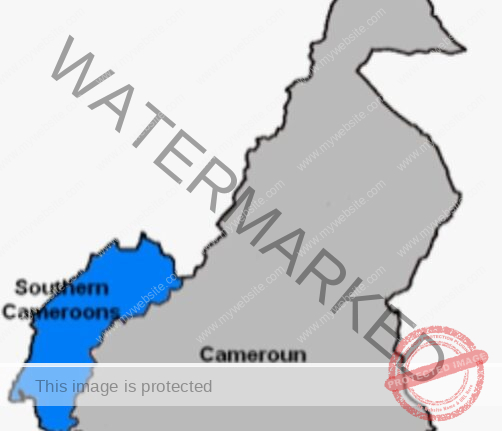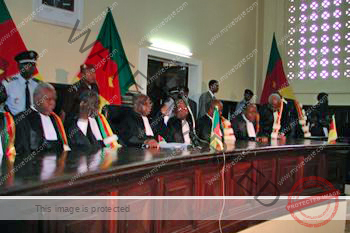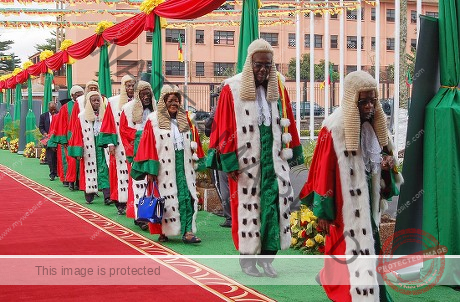By The Independentist editorial desk– Truth in Resistance, Clarity in Crisis
In the political theatre of French Cameroon, peace is often preached—but rarely practiced. It is used not to uphold justice but to suppress it, not to resolve conflict but to mask continuity in control. Behind this facade is a decades-long blueprint that traces its roots to the Accords de Coopération—a series of post-colonial arrangements France signed with its former territories even before the independence of Southern Cameroons.
Today, this same architecture of control is being quietly but aggressively extended to Ambazonia—without consent, without legal basis, and without legitimacy.
The French Blueprint for Perpetual Control
In 1960, the Republic of Cameroon gained independence from France and immediately entered into multiple Accords de Coopération with its former colonial master. These agreements guaranteed French access to key sectors: military command, currency management, foreign policy, and natural resources. What was presented as assistance was, in fact, a means of retaining control under a new label—sovereignty in name, submission in substance.
From that moment, democratic change in Cameroon became a choreographed performance. Every succession—from Ahmadou Ahidjo to Paul Biya—was less a product of popular will and more a decision ratified behind closed doors in Yaoundé and Paris.
This was never about peace. It was about preserving a post-colonial order that served French interests, even at the cost of African dignity.
Ambazonia: A Land Outside the Accord
When France was crafting these deals in 1960, Southern Cameroons was not part of La République du Cameroun. It was a British-administered UN Trust Territory moving on a completely different path. The people of Southern Cameroons were not consulted, were not signatories, and had no obligations under these French pacts.
In 1961, Southern Cameroons joined the Republic of Cameroon in a federation of equals, not as a colony and certainly not under the terms of France’s preexisting agreements. Yet over time, through manipulation and betrayal—including the 1972 abolition of the federation—La République has sought to forcibly apply those same accords and colonial mechanisms to Ambazonia.
This is not only historically dishonest—it is legally null and morally bankrupt.
Peace as a Cover for Repression
For decades, the regime in Yaoundé has used the language of peace to neutralize calls for justice. Political opponents are not engaged—they are jailed. Dissidents are not heard—they are hunted. Elections are not contested—they are orchestrated.
And through it all, France offers diplomatic cover, calling for stability while backing a system that perpetuates instability by silencing the very people who demand reform.
The current succession plans—whether involving Frank Biya, Ferdinand Ngoh Ngoh, or any other chosen insider—follow this pattern. They are not about democratic renewal; they are about keeping the system intact. It is not transition. It is preservation.
Ambazonia’s Refusal to Submit
In the midst of this repression, Ambazonians have chosen a different path.
They have not declared war—they have declared the right to exist. They have not rejected democracy—they have rejected a false democracy built on inherited repression. They have said clearly: the Accords de Coopération do not apply to us. France did not colonize us. We are not an extension of a contract we never signed.
As President Samuel Ikome Sako of the Federal Republic of Ambazonia has affirmed:
“We cannot afford to validate, through participation, a political structure that has never respected our sovereignty. Peace without justice is submission. And we have submitted for too long.”
A Warning to the International Community
Those who continue to support the Cameroonian regime in the name of stability must now face a fundamental truth: there can be no peace where justice is denied. There can be no unity where one people dominates another. And there can be no democracy when the outcomes are fixed, and the players are chosen in Paris.
The international community must stop treating the Cameroon-Ambazonia conflict as a domestic issue. It is a clear violation of international law, historical treaties, and human dignity. It is a forced extension of colonial-era contracts to people who never agreed to be bound by them.
Conclusion: The Right to Decide
Ambazonians are not asking for war. They are asking for dignity, truth, and choice. They are demanding the right to determine their own future, free from manipulation—whether from Yaoundé or Paris.
As Lord Tony Benn once said,
“The right to decide must always rest with the people.”
For Ambazonia, that right is not for sale.
It is not for debate.
And it is not up for negotiation.
The Independentist editorial desk
Truth in Resistance. Clarity in Crisis.





















Leave feedback about this